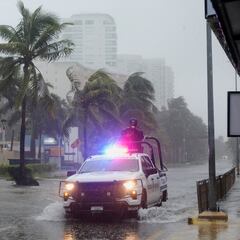Could there be a recession in the United States after a a Black Monday? This is how the Japanese stock market has fallen
Stocks in Japan have crashed due to the threat of a US recession caused by weak employment data.


In October 1987, the first of two famous stock market crashes christened ‘Black Monday’ occurred, with worldwide losses estimated at $1.71 trillion, according to economist Ulrike Schaede. In Japan, the initial decline in the Tokyo market was severe, and history has repeated itself 37 years later as the threat of a recession in the United States looms.
Last week, the NASDAQ, S&P500, and Dow Jones Industrial Average all fell as the Bureau of Labor Statistics showed increased unemployment and fewer jobs than expected were added to the US economy.
Huge drops in Nikkei 225 and Topix index in Japan
This Monday, there has been a devastating reaction in Japan. The benchmark Nikkei 225, which tracks a bundle of stocks within the Japanese market has fallen over 12.7 percent in 24 hours, worse than on that ‘Black Monday’ in 1987. Looking at the data over a slightly longer period of time, the drop has been over 23 percent in the last month.
Japan’s Topix index, meanwhile, which is broader than Nikkei, also plummeted by more than 12 percent having only reached an all-time high in July.
JUST IN: 🇯🇵 Japan's stock market suffers worst losses in history.
— BRICS News (@BRICSinfo) August 5, 2024
The Nikkei 225 stock index closed at 31,316.62 points today, dropping by 4,568.02 points or about 12.7%.
This is the largest single-day point drop in the index's history, surpassing the previous record set on… pic.twitter.com/vpzmzSpOM3
Rapid signs of decline are clearly of serious concern and come amid fears the Federal Reserve has not acted quickly enough to indications the US economy is weakening.
United States recession predictions
Whether that will lead to a recession is unclear at present, although Monday’s activity in Japan hasn’t give economists much encouragement.
Related stories
JP Morgan analysts believe there is currently a 50 percent probability of the United States going into recession, while the Vix index of expected US stock market turbulence (a.k.a. Wall Street’s “fear gauge,” as the Financial Times puts it) has risen above 40 points, its highest value since the start of the covid-19 pandemic.
Goldman Sachs, however, present a slightly less doomsday scenario. While their analysts have “increased 12-month recession odds by 10pp to 25 percent,” they predict the Federal Reserve will now have no choice but to implement a series of rapid interest rate cuts in effort to boost the economy.


Complete your personal details to comment